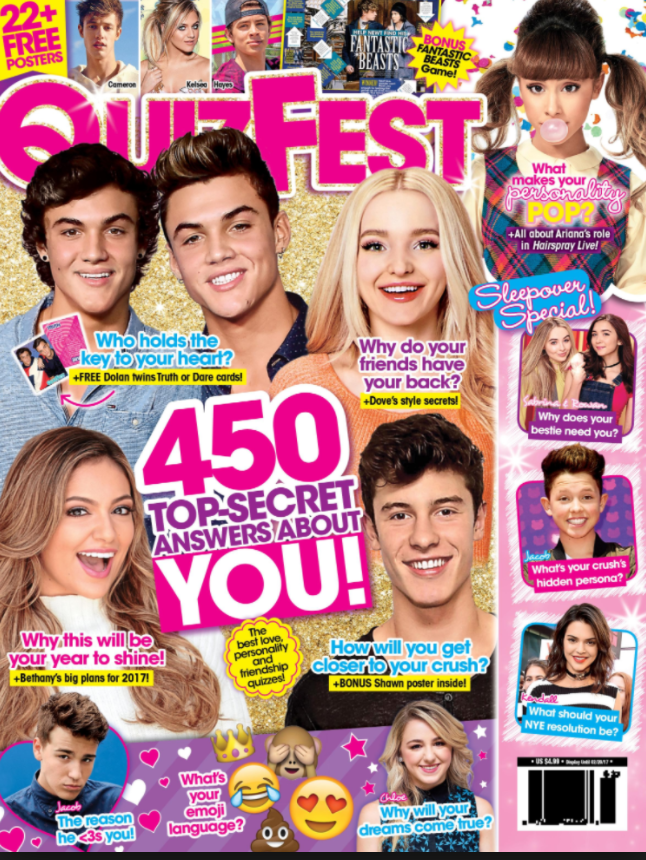QuizFest
This year, I will be a trendsetter! How do I know? My social media feed told me, of course!
According to quizfest magazine, “your love of makeup and fashion is going to pay off when others start coming to you about the latest trends.” How cool is that? And all I had to do to foretell the coming year was answer a few questions such as “Which hashtag screams YOU?” (#OOTD, of course) and “What is your instagram full of?” (Makeup and clothes!). You know what else I can find out? What my selfie says about me! Who my holiday hottie is! Which lip balm I should try! It’s all fun and games right? Wrong. In reality, quizzes such as these give destructive messages to the young girls they attract. These messages equate femininity to a superficial, materialistic ideal they are told they must live up to. The quizzes are arbitrary and shallow: “if you post mirror selfies, you’re rebellious!” How do we instill confidence in young women if they are being told that their character is defined by their selfie style? And why should a girl’s social media feed define her life?
Young girls already care too much about the delusional concept of their online social standing without magazines telling them it will determine their future. Social media can be a destructive force in many girls lives. Girls spend their time comparing their life and appearance to those around them, which can have a detrimental effect on their self-esteem. So can the emphasis on looks in girls’ magazines. The celebrities shown in these quizzes portray classically feminine stereotypes such as models, actresses, and singers. These pictures are photoshopped and each and every girl has shiny hair and smooth, glowing skin. These are the “role models” that girls are meant to look up to. No positive role models are shown who enforce the idea that women might aspire to be more than baubles. Shouldn’t we teach our girls that a role model should create positive change in the world aside from being pretty?
Have you ever seen quizzes in boys’ magazines? Those actually relate to useful skills that can be applied to the world: “How to use a knife”, “How to identify animal tracks”, “How to build a rocket”, suggesting that the world values their actions not just their looks. Quizzes like these spark ambition and a sense of worth. Knowing what your winter coat says about you cannot help you succeed in the world. Knowing how to build a rocket can. The quizzes suggest that boys’ intelligence is their currency. The only time a girl’s intelligence is mentioned in quizfest, it’s in relation to boys. “How do you illuminate his world? With your bright ideas!” As if the only reason a girl should care about how smart she is would be to impress some guy? “Why are you worth fighting for? You’re super-smart, making you relationship material!” There is a whole section of quizfest magazine devoted entirely to “love and boys.” LOVE AND BOYS. First of all, 90% of the girls reading this haven’t even gotten their period, and you are telling them that a whole section of their mind should be devoted to LOVE AND BOYS. And all the others sections of their mind should be spent worrying about how they look, how they dress, what their social media says about them. This perpetuates the stereotype that girls’ primary concern is boys and in doing so contributes to a society where women are not taken seriously. There is not one mention of girls in Boy’s Life magazine. They are too busy imparting empowering knowledge and useful skills.

